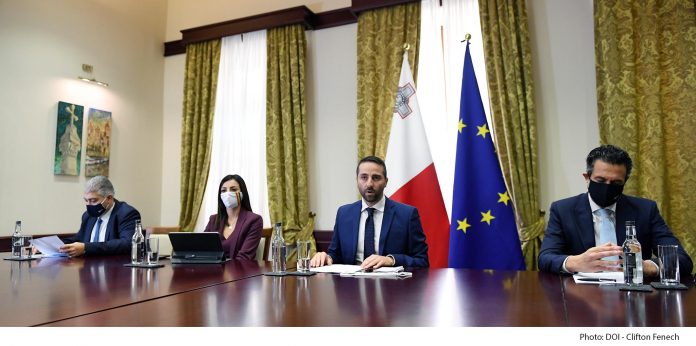
Parliamentary Secretaries Alex Muscat and Rosianne Cutajar announced that in the coming days amendments to the Civil Code will be implemented, through Act 23 of 2017, introducing marriage equality and addressing other issues dealing with marriage.
Unfortunately this act also provided a choice of surnames that the spouses could assume with the marriage but this was a more restricted option that removed the options that were available until then.
Faced with the amendments tabled to the Civil Code, Parliamentary Secretary Alex Muscat explained that couples will have all possible options when it comes to choosing a surname after marriage. He said these amendments will further strengthen the law of equal marriage because they are primarily intended to address the discrimination that exists in the choice of surnames.
In addition to the spouses being able to choose to keep their surname or take the other party’s surname and drop them off, they can now add the other party’s surname to theirs and in whatever order they want without imposing on the other side to do the same. Despite this flexibility, the couple has to agree on the family surname they eventually want to pass on to their children. In case the spouses choose to have the same surname, the future children must have the same surname of the choice of the parents.
The amendments tabled do not make any distinction between children born out of wedlock and those born out of wedlock, in fact, the latter will have a greater choice of surnames than they currently have. In the event that the person to be married is divorced or widowed, he or she may choose to retain the surname of the birth or the previous marriage in the composition of the new surname.
“Because I want to emphasize first of all that the same option must be available for children born out of wedlock. We believe that it is not time to make these distinctions between children. All children should be equal in a family, loved in the same way, and this should be reflected in the choice of surname, “said Parliamentary Secretary Alex Muscat.
Muscat explained that these amendments will apply retrospectively and how all married couples will have the opportunity to change their surname in the next five years in line with the amendments tabled. He said that the process of changing a surname according to the amendments tabled will be easy and without any extra bureaucracy. In fact, this change can be made at the request of the Director of the Public Registry instead of in the First Hall of the Civil Court. That way, the process will be faster and less costly.
Parliamentary Secretary Rosianne Cutajar stressed that this bill is symbolic. She said she was pleased that these amendments did not only address the needs of couples entering into marriage but also those families who choose not to marry. Through these amendments, parents who have a child out of wedlock can now give their surname like other married couples and thus we are treating everyone equally.
This bill is also clarifying that minors also have the right to determine for themselves the identity of their gender. We are confirming that in the birth certificate itself, parents can choose not to declare the sex of the baby, so that when that baby grows up, it will be up to her to determine her identity.
In addition to the amendments to surnames, the amendments will make it possible for corrections of any incorrect indication in the deeds to be made by request to the Court of Revision of Notarial Deeds without the need to bring an action before the -First Chamber of the Civil Court. This while gender change will be reflected under gender on the individual’s birth certificate.
Parliamentary Secretary Alex Muscat reiterated that this is indeed a government that listens and truly believes in equality. “Choosing a wide range of surnames does not distinguish between a woman and a man or a gay and heterosexual couple,” Mr Muscat concluded.
Parliamentary Secretary Rosianne Cutajar added that through these amendments we will be removing all forms of stigma against children born out of wedlock.









